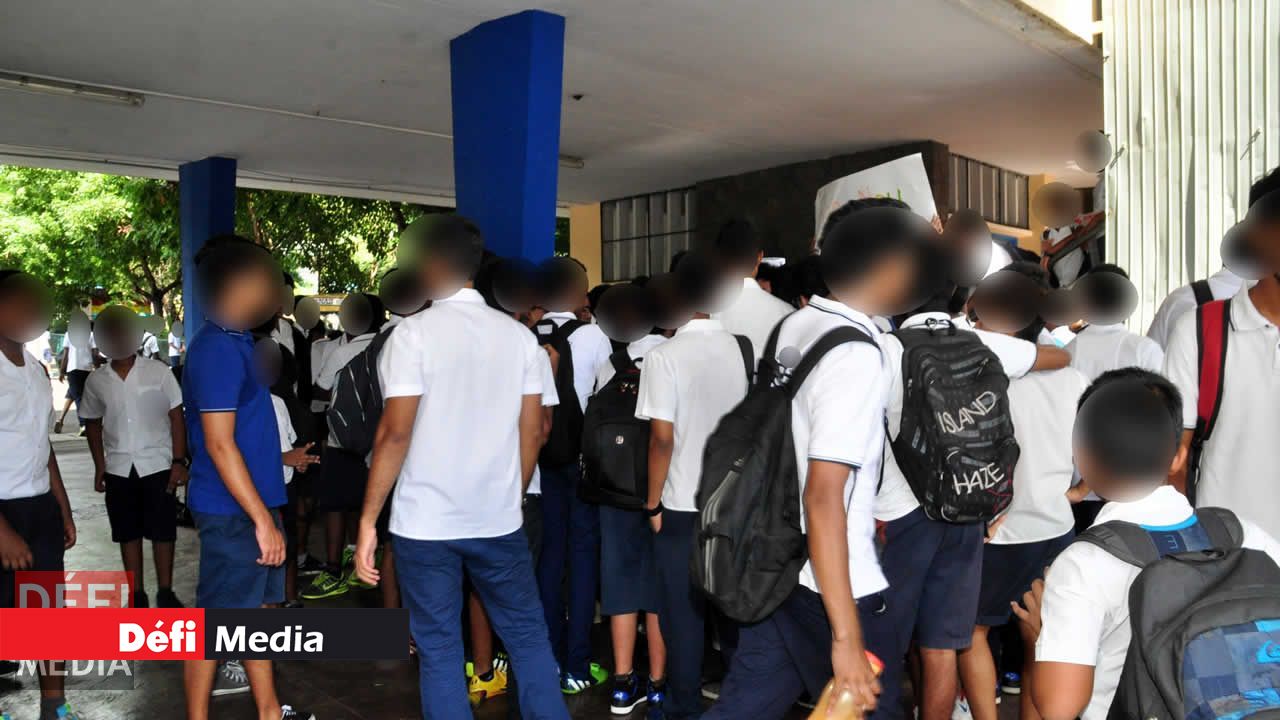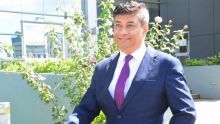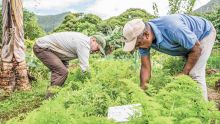
We must do far more to advance Sustainable Development Goal 4, to ensure inclusive and equitable quality education and promote lifelong learning opportunities for all. UN Secretary-General António Guterres
Publicité
THE CHALLENGE
Should we persist in discussing the issue of five credits, continue to blame our young learners for the overuse of cellular phone or blaming the parents for having shifted from an authoritarian style of parenting to the permissive style of parenting?
Let’s shift our mindset and go deep in the global educational challenges the world is facing in the global political , economic , social , technological , legal and ecological challenging context.
THE INTERNATIONAL DAY OF EDUCATION
On the 24th January 2020, the world celebrated the International Day of Education a day proclaimed by the United Nations General Assembly to honor education and its importance and centrality to human well-being and sustainable development.
POINT TO REMEMBER: EDUCATION IS A HUMAN RIGHT
The right to education is enshrined in article 26 of the Universal Declaration of Human Rights and the declaration calls for free and compulsory elementary education. The Convention on the Rights of the Child which as adopted in 1989, goes further to stipulate that countries shall make higher education accessible to all.
EDUCATION : KEY TO SUSTAINABLE DEVELOPMENT
When the international community adopted the 2030 Agenda for Sustainable Development in September 2015, they unanimously recognized that education is essential for the success of all the 17 of its goals. Particularly the Sustainable Development Goal 4 that aims to “ensure inclusive and equitable quality education and promote lifelong learning opportunities for all” by 2030.
THE CHALLENGES TO ENSURE THE RIGHT OF EDUCATION FOR ALL
It is agreed by the international educational community that education offers children a ladder out of poverty and a path to a promising future but on the other hand there are still:
a) About 265 million children and adolescents around the world do not have the opportunity to enter or complete school
b) 617 million children and adolescents cannot read and do basic math
c) Less than 40% of girls in sub-Saharan Africa complete lower secondary school and some four million children and youth refugees are out of school.
SDG 4: FACTS AND FIGURES
The latest figures of the Sustainable Development Goals are indicating that still :
d) Enrolment in primary education in developing countries has reached 91 per cent but 57 million primary age children remain out of school.
e) More than half of children that have not enrolled in school live in sub-Saharan Africa.
f) An estimated 50 per cent of out-of-school children of primary school age live in conflict-affected areas.
The right to education of all those children is being violated and it is unacceptable.
REFLECTING ON THE UN 2020 THEME ‘Learning for people, planet, prosperity and peace’
The 2020 UN theme is ‘Learning for people, planet, prosperity and peace,’ and it highlights the integrated nature of education, its humanistic aims, as well as its centrality to our collective development ambitions. It provides to the overall educational stakeholders and partners :
a) The flexibility to tailor the celebration for diverse audiences, a variety of contexts and for priority themes.
b) To position education , teaching and the learning as humanity’s greatest renewable resource
c) To reaffirm the role of education as a fundamental right
d) To advocate and confirm that education is a public good and an enabler of the 2030 Agenda for Sustainable Development.
e) To use SDG 4 to advocate and ensure inclusive and equitable quality education and lifelong learning for all
f) To use education goals as a necessary means to accelerate progress and to meet the targets of all 17 Sustainable Development Goals.
THE HUMANISTIC APPROACH TO EDUCATION
A humanistic approach to education focuses on the relevance and importance of an integrated approach to the multiple individual and collective purposes of education. Education should be at the heart of both personal and community development. Its mission should be to :
a) Help all people to develop their full potentials and to realize their creative potentials, including the responsibility for their own lives and their capacity to contribute to society and become a powerful catalyst for combating poverty and inequality, improving health and well-being, and overcoming discrimination.
b) Achieve gender equality
c) Consider education as crucial and vital for individuals to live healthy lives and make informed decisions for themselves, their families and their communities.
d) Be instrumental in the strengthening of democracy and the rule of law, as well as to enhance equality by empowering vulnerable populations.
e) Enable people to confront multidimensional social challenges, such as poverty, gender inequality and social isolation
PLANET : THE RISK OF HUMAN SURVIVABILITY
Most scientists and researchers in the world are reminding us all with increasing urgency, that human survivability is at risk . We therefore need significant changes to current development patterns, which are causing environmental degradation, rapid biodiversity loss and climate change.
Formal, non-formal and informal learning opportunities can contribute to the transformation needed to realize more environmentally sustainable societies, in concert with initiatives from government, civil society and the private sector.
Education shapes values and perspectives but it should also contribute to the development of skills, competences , concepts and tools that can help to reverse or stop unsustainable practices and allow humans to live in greater harmony with the natural world.
Can the education system take this Challenge : it should?
PROSPERITY : REDUCING EDUCATION DISPARITY
New trends in educational planning are advocating for :
• Vocational skills development to be considered as essential for inclusive growth because it may contribute in leaving anyone behind.
• Education and training can enhance job opportunities, increase the incomes of the poorest
• If equitably to education is provided it can contribute to reduce inequality.
• Reducing education disparity can increase access to decent work among disadvantaged groups.
THE LATEST UNESCO ANALYSIS
According to an analysis conducted by UNESCO are confirming that :
a) If all people completed secondary school, as called for by Sustainable Development Goal 4, world poverty could be reduced to half.
a) Education is clearly linked with increased earnings for individuals
b) Across 139 countries, the rate of return per additional year of schooling is 10 per cent.
c) Rates of return are highest in poorer countries that have a shortage of skilled workers.
PEACE : THE NEED FOR DEMOCRATIC , REPRESENTATIVE INSTITUTIONS AND WELL-FUNCTIONING JUSTICE SYSTEMS
There is no doubt that persistent violence and armed conflict undermine all human rights and violates the right to education of many children in the world . Preventing violence and achieving sustainable peace requires democratic, representative institutions and well-functioning justice systems.
In the best interest of our children , we should all endeavor to ensure that education become a condition for political participation, inclusion, advocacy and democracy and the best instances /instrument to foster and catalyze and buttress peace.
A recent study drawing on data from 100 countries over 50 years found that :
a) Those with wider education gaps were more likely to be in conflict
b) Education can also play a vital role in peacebuilding and reconciliation.
c) Education initiatives have a proven potential to help marginalized populations gain access to justice that contributes to peaceful societies.
QUEST FOR AN INCLUSIVE AND EQUITABLE QUALITY EDUCATION AND LIFELONG OPPORTUNITIES
We will not succeed in achieving gender equality , reduce school dropout and failure , break the cycle of poverty that is leaving millions of children, youth and adults behind without adopting an inclusive and equitable quality education and lifelong opportunities for all.
A challenge that we all shall be morally bound to.
In Mauritius , there is a pressing need for professional in the field of education including those from the early years sector up to the tertiary sector to engage in a constructive dialogue and rethink education in line with today’s world , which is vastly different from that of 50 years ago.
We should take into consideration the pace of global change acceleration with increasing globalisation, advances in technology, communications and social networking, the increased access to information, the explosion of knowledge and the increasing complexity of various social and environmental issues.
The world of work also is undergoing rapid change with greater workforce mobility, growth in knowledge-based work, the emergence of multi-disciplinary work teams engaged in innovation and problem solving, and a much greater requirement for continual workplace learning.
Today, technology has become a significant driver behind change, and sometimes plays an important role in innovations in educational design and delivery. There are immense possibilities for greater and wider-spread change with the use of present-day technological advancements, as well as with the implementation of innovative educational programs.
The challenge start thinking . debating, arguing and criticize with an innovative mind for new innovative educational policies , aims and objectives , educational projects , curriculum , teaching approaches and improving educational opportunities for billions of people who remain under-served in a rapidly developing world
In the best interest of all the learners in Mauritius , lets in 2020 focus on the real challenges of education and engage into real innovative thinking for an innovative education to create an innovative nation .
Education is the most powerful weapon, which you can use to change the world. Nelson Mandela, former President South Africa
Reedha Rajendra Coomar
Chairman -Fondation Pour l’Enfance Terre de Paix
President Centre for Holistic Education and Development
Secrétaire Générale Observatoire de la Parentalite Océan Indien

Notre service WhatsApp. Vous êtes témoins d`un événement d`actualité ou d`une scène insolite? Envoyez-nous vos photos ou vidéos sur le 5 259 82 00 !




















![[Info Soirée] : « bizin pa negliz bann slow learners »](https://defimedia.info/sites/default/files/styles/square_thumbnail/public/thumbnail_190425.jpg?itok=J--MzK_k)
